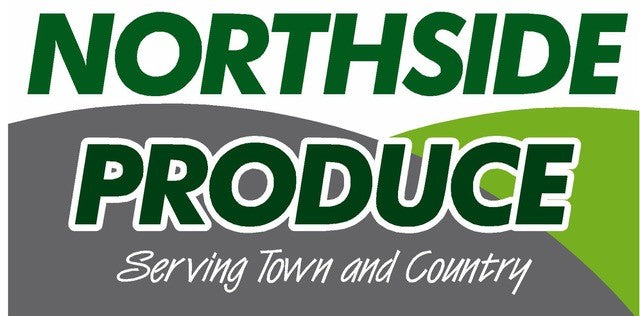

SEED PASPALUM DILIATATUM COATED 25KG BAG
Regular price $635.00
Unit price per
Paspalum Diliatatum Seeds – 25kg
The ideal choice for those seeking a robust and versatile pasture solution. Paspalum Diliatatum, a leafy, tufted perennial, is renowned for its adaptability as a permanent pasture. However, its utility extends beyond, making it suitable for hay or silage, especially when harvested before flowering.
Advantages:
Palatable when young: Paspalum Diliatatum is a favourite among livestock when in its early stages, ensuring that animals readily consume the grass.
Can be heavily grazed: This resilient species can withstand substantial grazing pressure, making it a durable option for pastures subjected to frequent use.
Does not outcompete legume varieties: Paspalum coexists harmoniously with legume varieties, providing a well-balanced and diverse pasture environment.
Limitations:
Short grazing season: The grazing season for Paspalum Diliatatum is limited, necessitating strategic management to optimise its use.
Susceptible to ergot: Care should be taken to harvest before flowering, as flowering can lead to ergot infestations, affecting both palatability and forage quality.
Can become sod-bound: Regular renovation may be required to prevent sod-binding, particularly in fertile, moist, sandy loams, and clay soils.
Seeding Rate:
Sow Paspalum Diliatatum seeds at a rate of 3 – 10 kg per hectare to establish a thriving pasture stand.
General Fertilisation Guide:
While Paspalum can persist on infertile soil, optimal stands are achieved with 100-150 kg nitrogen application on less fertile soil types.
Growing Management:
Maintaining stands between 5-8 cm ensures optimal productivity. Excessive grazing pressure can lead to a reduction in yields by up to two-thirds.
Forage Quality:
Feed quality declines with maturity, emphasising the importance of harvesting before flowering. Palatability is highest before flowering, decreasing significantly afterward due to potential ergot infestations.
Planting Requirements:
Paspalum Diliatatum thrives in fertile, moist, sandy loams, and clay soils. Periodic renovation may be necessary to prevent sod-binding, especially in areas prone to compaction. The plant is intolerant of salt but performs well on poorly draining soil types.
Invest in our Paspalum Diliatatum Seeds for a reliable, nutritious, and enduring pasture solution that meets the diverse needs of your livestock. With proper management, these seeds promise to transform your grazing and forage capabilities.
The ideal choice for those seeking a robust and versatile pasture solution. Paspalum Diliatatum, a leafy, tufted perennial, is renowned for its adaptability as a permanent pasture. However, its utility extends beyond, making it suitable for hay or silage, especially when harvested before flowering.
Advantages:
Palatable when young: Paspalum Diliatatum is a favourite among livestock when in its early stages, ensuring that animals readily consume the grass.
Can be heavily grazed: This resilient species can withstand substantial grazing pressure, making it a durable option for pastures subjected to frequent use.
Does not outcompete legume varieties: Paspalum coexists harmoniously with legume varieties, providing a well-balanced and diverse pasture environment.
Limitations:
Short grazing season: The grazing season for Paspalum Diliatatum is limited, necessitating strategic management to optimise its use.
Susceptible to ergot: Care should be taken to harvest before flowering, as flowering can lead to ergot infestations, affecting both palatability and forage quality.
Can become sod-bound: Regular renovation may be required to prevent sod-binding, particularly in fertile, moist, sandy loams, and clay soils.
Seeding Rate:
Sow Paspalum Diliatatum seeds at a rate of 3 – 10 kg per hectare to establish a thriving pasture stand.
General Fertilisation Guide:
While Paspalum can persist on infertile soil, optimal stands are achieved with 100-150 kg nitrogen application on less fertile soil types.
Growing Management:
Maintaining stands between 5-8 cm ensures optimal productivity. Excessive grazing pressure can lead to a reduction in yields by up to two-thirds.
Forage Quality:
Feed quality declines with maturity, emphasising the importance of harvesting before flowering. Palatability is highest before flowering, decreasing significantly afterward due to potential ergot infestations.
Planting Requirements:
Paspalum Diliatatum thrives in fertile, moist, sandy loams, and clay soils. Periodic renovation may be necessary to prevent sod-binding, especially in areas prone to compaction. The plant is intolerant of salt but performs well on poorly draining soil types.
Invest in our Paspalum Diliatatum Seeds for a reliable, nutritious, and enduring pasture solution that meets the diverse needs of your livestock. With proper management, these seeds promise to transform your grazing and forage capabilities.



